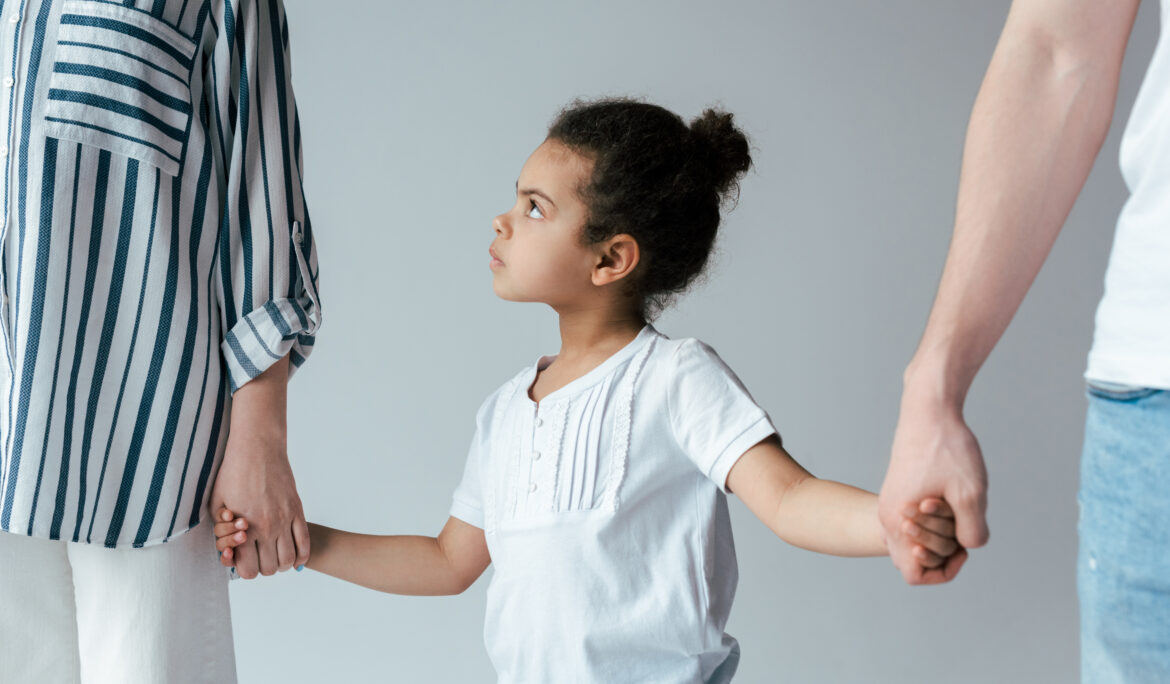In California, a criminal conviction can seriously impact custody. But what happens when that conviction is reversed on appeal? The court doesn’t automatically restore full parental rights. Instead, it reexamines whether custody changes serve the child’s best interest. Parents in this situation may need to request modifications, present updated evidence, and rebuild trust with the court. Timing, legal guidance, and the nature of the original charges all matter.
When a parent’s criminal conviction is overturned, it brings relief, but also a new round of questions. Especially for those who lost custody rights during the legal process, what comes next isn’t always automatic.
In California, family courts put children first. Even if the legal system clears your name, regaining custody may take time, proof, and persistence.
What Happens To Custody When A Conviction Is Reversed?
Having a conviction overturned is a legal win, but it doesn’t guarantee immediate changes in child custody orders. In California, family court still takes a fresh look at what’s best for the child going forward, not just what was wrong in the past.
Custody Orders Remain In Effect Until Modified
Just because your conviction was reversed doesn’t mean your custody arrangement will update automatically. The existing order, whether it limits your parenting time or removes custody altogether, remains in place until a court formally changes it.
To restore rights, you’ll need to file a request for custody modification and present updated facts to show why that change supports your child’s well-being.
The Court Re-Evaluates Best Interests
California family courts always use the “best interest of the child” standard (Family Code § 3011). That means the court will examine your current circumstances, not just the fact that the conviction was overturned.
Are you stable now? Are you involved in your child’s life? Can you offer a safe, supportive home environment? These factors all come into play when the judge reconsiders custody.
Past Accusations May Still Hold Weight
Even with a reversal, some courts remain cautious, especially if the original case involved violence, abuse, or child endangerment. A conviction being thrown out doesn’t necessarily erase a judge’s concerns.
In some cases, the court may require supervised visitation first or request a family court services evaluation before changing any orders.
Having your name cleared is a powerful first step, but it’s not the last one. To change custody, you’ll need to demonstrate why reuniting or expanding time with your child is in their best interest now, not just why the prior court decision was wrong.
4 Key Steps To Take After A Custody Loss Tied To Conviction
Getting a conviction overturned in California doesn’t automatically reopen the door to custody, but it does give you a real shot at restoring your parental rights. Here are four critical steps to help you move forward.
1. File A Request To Modify The Custody Order
Once your conviction is reversed, the first legal move is to petition the court for a modification of the existing custody order. You’ll need to show a “change in circumstances,” and a reversal absolutely qualifies.
Use California Judicial Council Form FL-300 to get the process started, but be prepared to explain not just the reversal, but why custody should change now.
2. Gather Documentation That Shows Stability
Family court judges in Orange County and beyond want to see that your life is in order. Gather proof of stable housing, employment, clean criminal records, parenting class certificates, or counseling if applicable.
The court needs to be confident that your child will be returning to a safe and secure environment.
3. Address The Time You’ve Spent Apart From Your Child
Depending on how long you’ve been out of your child’s life, the court may proceed cautiously. Be prepared to suggest a reunification plan, possibly including supervised visits or therapy-supported transitions.
Demonstrating patience and a child-centered mindset helps build credibility with both the court and co-parent.
4. Work With An Experienced Family Law Attorney
This process isn’t just about paperwork; it’s about advocacy. An attorney can help you present your case clearly, respond to objections, and navigate any pushback from the other parent. They ensure the court sees not just the legal reversal, but the human side of your story.
Your conviction being overturned gives you a new legal start, but restoring custody takes care, documentation, and persistence. Take it step by step, and focus on what the court values most: your child’s well-being.
Custody Outcomes Before Vs. After A Conviction Reversal
Custody decisions in California are made based on current facts, not assumptions. When a parent’s conviction is overturned, the court doesn’t simply reverse its original custody ruling.
Instead, it looks at how circumstances have changed and what’s best for the child now. Here’s how outcomes typically compare:
| Custody Factor | Before Conviction Reversal | After Conviction Reversal |
| Parental Rights | May be suspended or severely limited. | It can be restored through a modification request. |
| Visitation | Often supervised or denied altogether. | May increase gradually; sometimes starts with reunification plans. |
| Public Record | Conviction used to justify reduced custody. | Overturned conviction may be referenced, but the court focuses on the present stability. |
| Judicial Attitude | Cautious; prioritizes child safety amid criminal conviction. | Still cautious, but more open to reconsidering custody rights. |
| Evidence Considered | Criminal record, court transcripts, co-parent’s concerns. | New legal findings, proof of rehabilitation, updated family dynamics. |
Although the court won’t erase what happened, it can reframe the custody conversation around your current capabilities and the legal clearing of your name. That means you’ll need to bring new facts, not just revisit old ones.
Custody after a reversal isn’t about the past; it’s about showing the court you’re ready now. What’s changed in your life will often matter more than what was undone in court.
When The Other Parent Challenges Your Return To Custody
Even with a conviction overturned, the other parent may not be ready, or willing, to agree to changes in the custody order. It’s not uncommon for custody modification cases to be contested, especially if trust, safety, or long-standing parenting routines are involved.
Expect Emotional Resistance & Legal Arguments
If your former conviction played a major role in the custody order, the other parent might push back emotionally or legally. They may argue that your prior absence, limited parenting time, or alleged behavior still pose risks to the child.
This doesn’t mean the court will side with them, but you should be prepared to present calm, factual responses that show how circumstances have changed.
Evidence & Conduct Matter More Than Emotions
California family courts don’t base custody rulings on emotion. They look at parenting ability, safety, and what benefits the child long-term.
Bring documentation of counseling, classes, consistent child support payments, or healthy co-parent communication since your conviction was overturned. Judges want to see a parent who has moved forward, not just one who’s been legally cleared.
Mediation May Be Ordered Before A Court Hearing
In Orange County and throughout California, courts often require both parents to attend Family Court Services mediation before holding a custody hearing.
This is a chance to reach an agreement outside of court, but if emotions are high, it can also clarify the real issues. If mediation fails, the judge may consider appointing a custody evaluator or guardian ad litem to assess the situation.
Being cleared of a conviction is powerful, but it may not change your co-parent’s concerns overnight. Be ready for some resistance, and focus on steady, child-focused steps toward reunification.
How Reunification Works After A Reversed Conviction
Even after a conviction is overturned, courts may cautiously reintroduce a parent into a child’s life, especially if there’s been a long disconnection. Reunification is a step-by-step process designed to protect the child’s emotional health while reestablishing trust.
Rebuilding Trust Through Supervised Visits
California courts often begin with supervised visitation, especially if the parent has not seen the child regularly during the legal proceedings. This allows the parent and child to reconnect gradually, with a neutral third party present.
Supervised visits are typically held at a licensed facility or agreed-upon location. The goal isn’t to monitor your every move; it’s to create a safe space while reestablishing the relationship.
Court-Approved Parenting Plans Are Vital
The court may require a structured parenting plan that outlines how and when contact will increase. These plans are often tailored to the child’s age, comfort level, and the length of time since regular contact.
A reunification plan may include therapy, parenting classes, regular court reports, and a proposed schedule for transitioning from supervised to unsupervised time.
In Orange County, these plans are often reviewed and adjusted over time, depending on progress and cooperation between parents.
Child’s Voice May Be Considered
In California, if a child is 14 or older, the court may allow them to speak about their wishes regarding custody or visitation. Even for younger children, therapists or custody evaluators may offer input on the child’s emotional readiness for reunification.
This input helps ensure the child’s comfort and safety during the transition, especially if they’re struggling to make sense of past events.
Reunification takes time, but it’s designed to protect both the child’s well-being and your long-term relationship. With patience and consistency, it’s possible to rebuild meaningful, healthy parenting time after a reversal of a conviction.
Added to that, the right family law lawyer can give you the proper legal guidance to move forward confidently.
One Legal Setback Doesn’t Have To Define Your Family Future
Overturning a conviction doesn’t just clear your name; it opens the door to healing your relationship with your child. But the road back to custody or visitation isn’t automatic. It takes legal action, patience, and a focus on what’s best for your family right now.
At Werno Family Law Solutions, we understand how deeply a criminal conviction, wrongful or not, can affect every corner of your life, especially as a parent. Our team helps parents across Orange County navigate complex custody challenges with clarity, strategy, and support.
If your conviction has been reversed and you’re ready to take the next step toward restoring custody, let’s talk. Schedule a confidential consultation with Werno Family Law Solutions, and let’s move forward to rebuild your life.

Don Werno is the founder of Werno Family Law Solutions, serving Orange County family law clients for over 25 years. Don is known for delivering results with candor and integrity. His work has earned media recognition and multiple AVVO.com Client’s Choice awards.
For a consultation, contact Werno Family Law Solutions at 714-942-5932.






